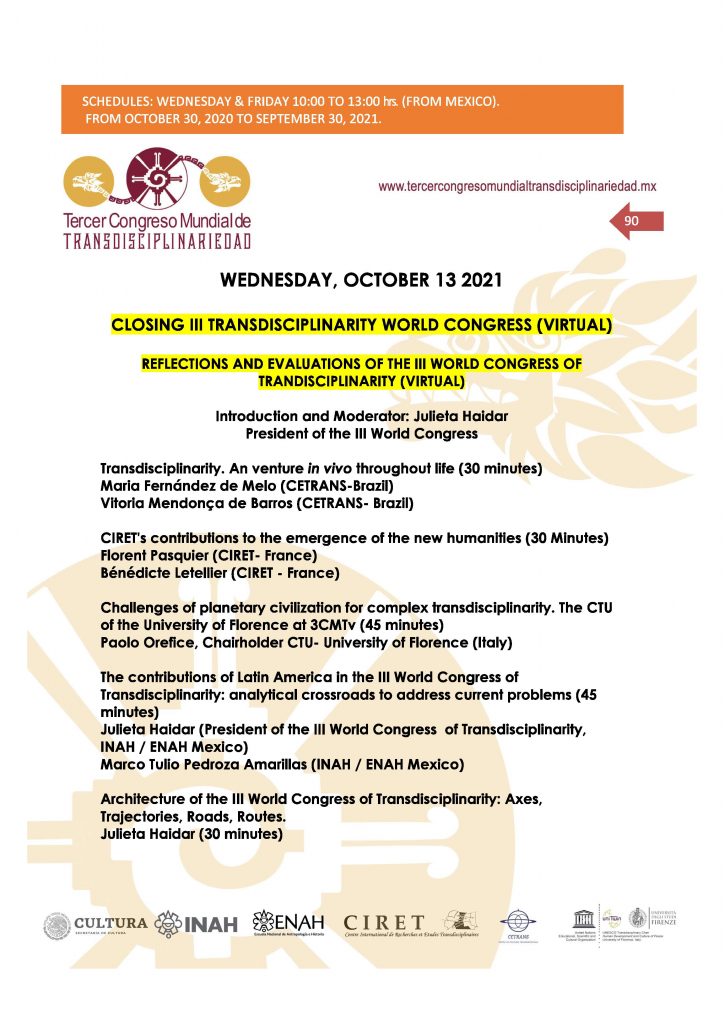
Transdisciplinarity has already a quite long history. The word itself was coined in 1970 by Jean Piaget, but its meaning was clarified only in 1985, when Basarab Nicolescu proposed the pillars of transdisciplinarity. In 1987 was founded in Paris the International Center for Transdisciplinary Research and Studies (CIRET).
The First World Congress of Transdisciplinarity was held from November 2th to 7th in 1994 at Convento de Arrábida, Portugal. The participants at the congress adopted the Charter of Transdisciplinarity which has been signed by several hundreds of transdisciplinary researchers in the world. In 2005, the Second World Congress of Transdisciplinarity took place in Vitoria / Vila Velha, Brazil. Many other important national and international congresses have been held all over the world. The last in date was the International Congress ATLAS 2018 “The Transdisciplinary Being”, at the University Babes-Bolyai in Cluj-Napoca, Romania.
Several applications have been implemented all over the world, e.g. in Education, Health, Arts, Sustainable Development and the dialogue between Science and Religion. Additionally, PhD programs in transdisciplinarity exist now in several universities. We can currently affirm that the international movement of transdisciplinarity has reached its maturity and new paths of research are being opened.
The aim of this congress is to bring together the largest number of participants from various national and international institutions in order to study the latest theoretical and practical developments of transdisciplinarity and to imagine new theoretical models, experiences and actions to face the extraordinary challenges of the 21st century, such as Planetary Education, Transhumanism, Artificial Intelligence, Destructive Technologies, Health, Poverty, Destruction of biologic diversity, Climate Change, War, Violence and many other problems that afflict human beings and all living beings on this planet.